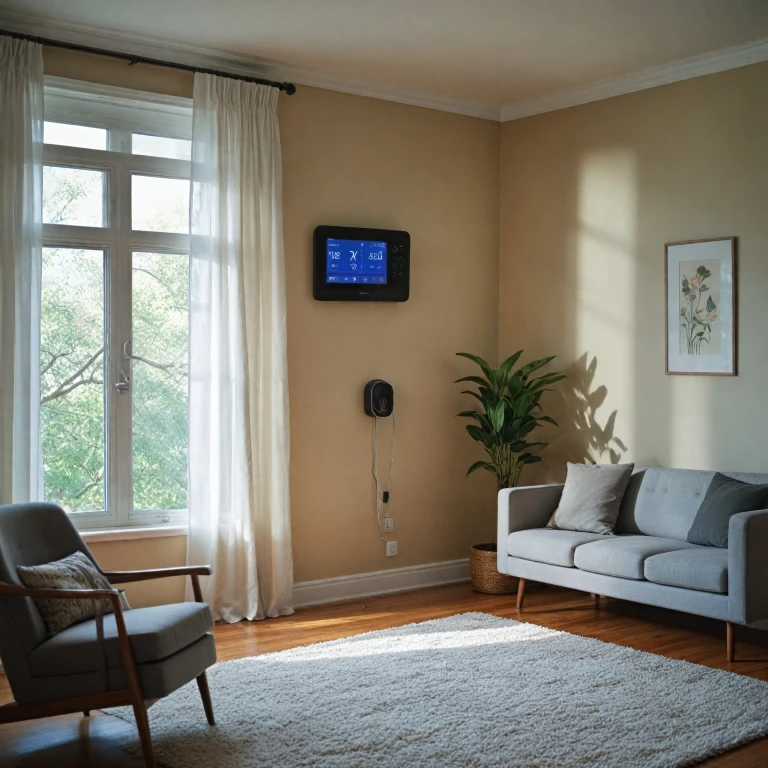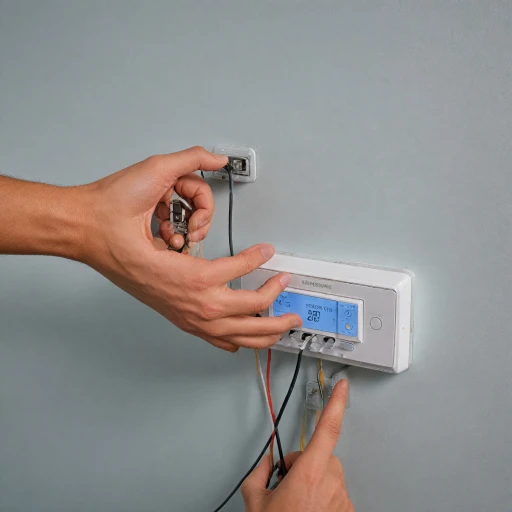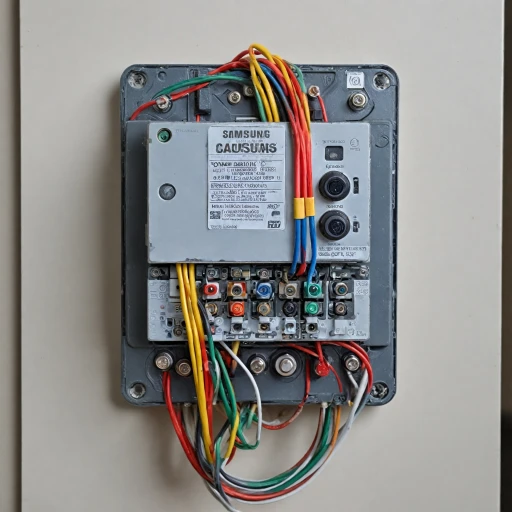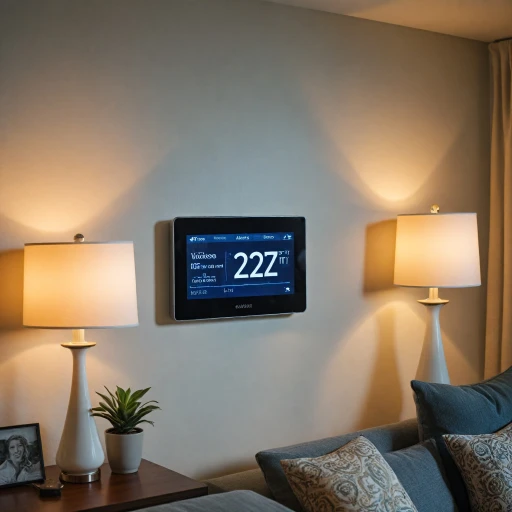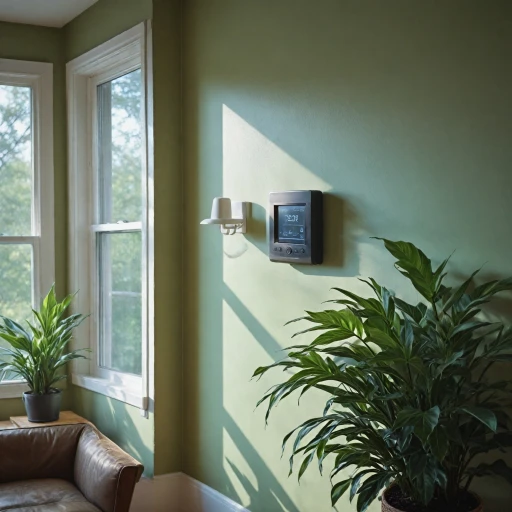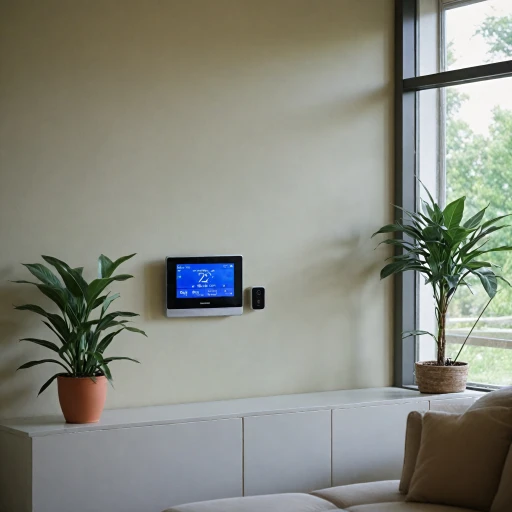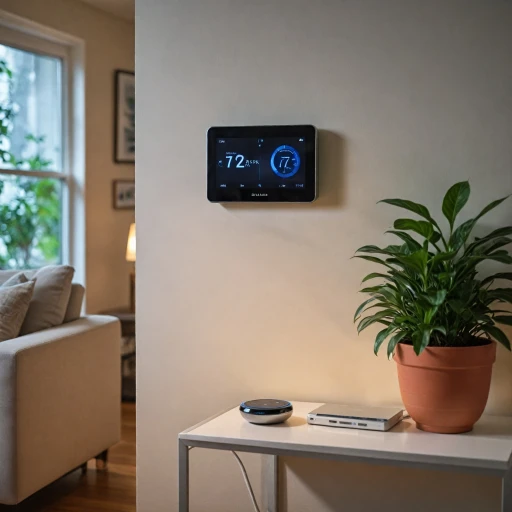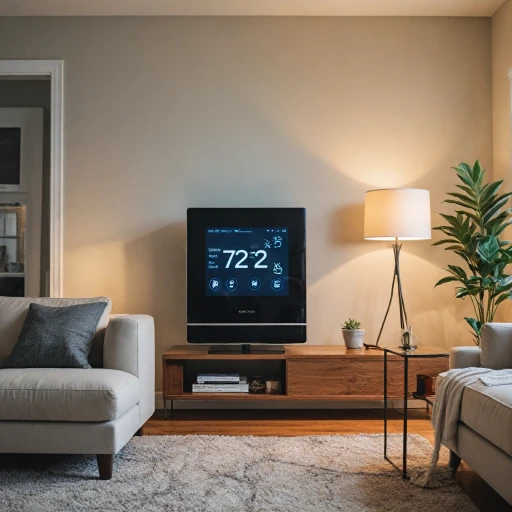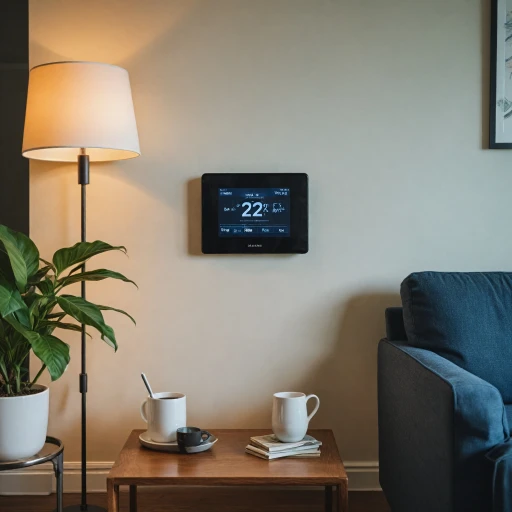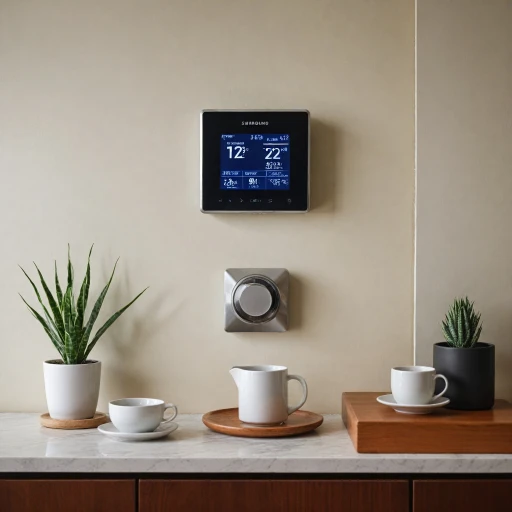
Understanding Smart Thermostats
Unveiling the Magic of Intelligent Temperature Control
Smart thermostats have revolutionized the way we manage home heating and cooling systems. These intelligent devices offer precise temperature control, making home environments more comfortable while conserving energy. Unlike traditional thermostats, smart thermostats are equipped with advanced features such as programmable settings, remote access, and self-learning capabilities.The Functionality of Smart Thermostats
Smart thermostats work by seamlessly integrating with your home's boiler and heating system, allowing you to set temperature preferences that align with your lifestyle. They function as a boiler thermostat, enabling you to control temperatures not just for your central heating but also for hot water systems. The beauty lies in their ability to adapt, learn, and optimize energy use. Over time, smart thermostats adjust the heating patterns based on your daily routines, ensuring that your home is heated when needed and saving money when it's not.Enhanced Connectivity and Control
Most smart thermostats are WiFi-enabled, providing you with the power to control the temperature from virtually anywhere using a smartphone or tablet. This remote access transforms how homeowners interact with their heating systems. Imagine adjusting the heat on your way back home so that you arrive to a warm abode, or reducing the temperatures while on a holiday without needing to be on-site.Cost-Effective Temperature Management
While the initial price of a smart thermostat may seem steep compared to traditional options, the long-term energy savings often justify the investment. By intelligently managing when and how often your heating system is engaged, these thermostats help cut down on unnecessary energy expenditures. For those transitioning from a natural gas system to propane or other heating methods, understanding the transition in fuel types can also influence your choice of thermostat, as some models are optimized for specific energy sources, ensuring both efficiency and cost-effectiveness.Integrating Smart Thermostats with Boilers
Seamless Integration with Your Heating System
Integrating smart thermostats with boilers offers a synergetic upgrade to traditional heating control systems. With the rise of technology, smart thermostats can now operate cohesively with different types of boilers, including gas and water heaters. This integration ensures not only consistent heat distribution but also significant improvements in energy efficiency. One key advantage is the programmable nature of smart thermostats. They allow users to set specific time intervals for heating or cooling, optimizing comfort levels and minimizing energy wastage. With advanced temperature controllers, you can specify the desired temperature set points, giving you a personalized heating experience. Moreover, when pairing a smart thermostat with a compatible boiler, the system learns your heating preferences over time. This learning capability enables the thermostat to make intelligent adjustments based on historical data. For instance, it can determine the most energy-efficient times to heat up the house or prepare hot water. The use of a WiFi-enabled smart thermostat also enables remote control of your heating systems. With the tap of a screen on your smartphone or a simple voice command, you can control multiple heating zones, ensuring optimal temperature settings even when you're away from home. Smart thermostats are designed to work with various heating systems, making them versatile additions to your home. For a deeper dive into how these thermostats benefit your eco-friendly efforts, check out the eco-friendly thermostat benefits. Notably, as the demand for smart technology increases, the price point for these devices continues to become more accessible. With potential energy savings and increased convenience, investing in a smart thermostat provides a long-term valuable solution for modern heating requirements.Energy Efficiency and Cost Savings
Optimizing Consumption with Programmable Heating Controls
Embracing smart thermostats in your setup takes the energy efficiency of your home to new heights. The ability to define schedules for your thermostat means you can program it to align with your daily routine. By setting specific temperature targets for different times of the day, homeowners can prevent excess energy usage, particularly during periods when the home is unoccupied.
When linked with an efficient boiler, a smart thermostat ensures the heating system operates only when necessary. This coordination eliminates wastage associated with traditional, manually-operated thermostats. The synergy not only promotes lower energy prices but also contributes to a more sustainable home environment by restricting overuse of gas or electricity.
Long-term Savings with Smart Technology
An additional benefit of smart thermostats is the potential for substantial cost savings over time. Just by utilizing the smart and programmable features, homeowners can significantly reduce their utility bills. Studies show that efficient heating control, such as through wifi-connected thermostats, can lead to as much as 10-15% reduction in heating costs annually.
Reduce Environmental Impact Without Compromising Comfort
While the initial investment might seem daunting, the long-term financial and environmental benefits make it worthwhile. Smart thermostats optimize the temperature controller settings, reducing the carbon footprint associated with excessive gas boiler use. This makes them an attractive option for eco-conscious homeowners looking to make smart energy choices.
To further understand how these devices integrate with other smart systems, it’s worth exploring their compatibility with Alexa, which can enhance the experience of managing your home's environment even more seamlessly.
Remote Control and Automation
Effortless Control and Automation
Imagine controlling your home’s temperature with just a tap on your smartphone. This is not a distant dream. With the integration of smart thermostats, you have seamless control over your heating system from anywhere with WiFi access. This offers you flexibility and freedom, whether you are at home, at work, or on vacation. Smart thermostats allow you to set the temperature according to your schedule. You can program your thermostat to lower the heat when you’re away and warm up just in time for your arrival. This capability leads to substantial energy savings while maintaining comfort. By eliminating unnecessary heating times, you can significantly cut down on energy consumption. Here’s how a typical automation can benefit your home:- Custom Schedules: Schedule your heating to align with your daily routine, ensuring your house is warm when you are home and saving energy when you are not.
- Remote Adjustments: Modify your thermostat settings at any time through a convenient smartphone app—it’s perfect for those unpredictable changes in your schedule.
- Smart Features: Utilize learning features that intuitively adapt to your preferred temperature set, optimizing energy use without manual input.
Challenges and Considerations
Challenges in Optimizing Your Heating System
Integrating smart thermostats with your boiler and central heating systems comes with its own set of challenges. Being aware of these considerations can help you make informed decisions when choosing and installing devices to enhance efficiency.Compatibility and Integration
Selecting a smart thermostat that is compatible with your current heating system is crucial. Many homeowners face difficulties when integrating thermostats with older boilers or specific types of heating controls. It's important to verify whether the thermostat can effectively communicate with the existing boiler thermostat and other heating components. This step ensures seamless control over temperature settings and the overall system's functionality.Installation Complexity
While some smart thermostats are designed for easy DIY installation, others might require professional help, particularly if they need to be connected to a wifi network or integrated into complex heating systems. Professional installation can increase the overall price, but it guarantees that the system is set up correctly and reduces the risk of malfunctions.Security and Privacy Concerns
As with any smart device, concerns around data privacy and security arise. Smart thermostats are connected to the internet and may potentially expose personal information or become targets for cybersecurity threats. Choosing systems with robust security features and regularly updating software can mitigate such risks.Understanding and Setting Preferences
Smart thermostats offer a range of programmable features that might be overwhelming for some users. Having the technical know-how to set up various heating and cooling preferences—including time schedules and temperature settings—is essential. Fortunately, many manufacturers provide detailed guides and customer support to assist users in maximizing the potential of their heating controls.Cost Considerations
While the initial investment in a smart thermostat and compatible systems might be high, potential savings over time from energy efficiency can offset the upfront costs. Evaluating the long-term advantages, such as reduced energy bills and improved heating efficiency, can justify the initial price. Being informed about these challenges enables you to navigate the integration of smart thermostats into your heating system effectively, ensuring you make the most of this innovative technology.Future Trends in Smart Heating Solutions
Emerging Innovations in Smart Heating
The landscape of smart thermostats and heating systems is evolving rapidly, driven by technological advancements and a growing focus on energy efficiency. As we look to the future, several trends are poised to redefine how we manage our home environments.
AI and Machine Learning Integration
One of the most exciting developments is the integration of artificial intelligence (AI) and machine learning into smart thermostats. These technologies enable thermostats to learn from user behavior, optimizing heating and cooling schedules automatically. This not only enhances comfort but also maximizes energy savings by adjusting the temperature set points based on historical data and real-time conditions.
Enhanced Connectivity and Interoperability
With the rise of the Internet of Things (IoT), smart thermostats are becoming more interconnected with other home devices. This connectivity allows for seamless integration with smart home ecosystems, enabling users to control their heating systems through a single app or voice commands. The ability to connect with other devices, such as smart water heaters and gas boilers, enhances the overall efficiency of the heating system.
Focus on Sustainability
As environmental concerns continue to grow, there is a significant push towards eco-friendly heating solutions. Smart thermostats are increasingly being designed to support renewable energy sources and reduce reliance on fossil fuels. This shift not only helps in lowering energy bills but also contributes to a more sustainable future.
Advanced User Interfaces
Future smart thermostats will likely feature more intuitive and user-friendly interfaces. Touchscreens, voice control, and even augmented reality (AR) interfaces are being explored to make it easier for users to interact with their heating systems. These advancements aim to simplify the process of setting and adjusting temperature controls, making it more accessible to a wider audience.
Challenges and Considerations
While the future of smart thermostats is promising, there are challenges to consider. Privacy concerns and the need for robust cybersecurity measures are paramount as these devices become more connected. Additionally, the initial price of smart thermostats and the complexity of integrating them with existing heating systems can be barriers for some consumers.
In conclusion, the future of smart heating solutions is bright, with innovations that promise to enhance comfort, efficiency, and sustainability. As these technologies continue to evolve, they will play a crucial role in shaping the way we manage our home environments.

